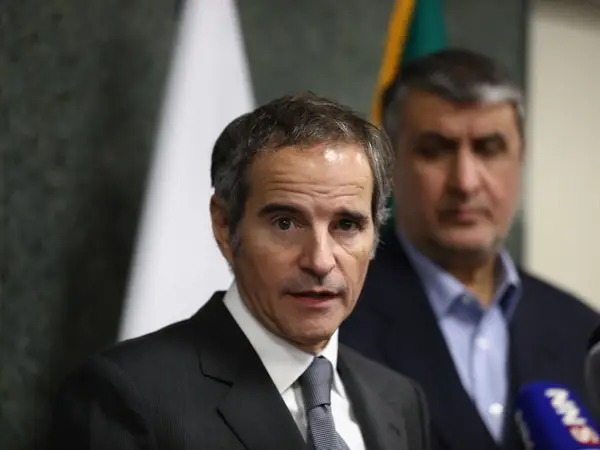A former Iranian lawmaker says the reason why the United States has not yet returned to the 2015 nuclear deal is that Israel keeps exerting pressure on Washington.
Sabah Zanganeh, a relative of Iran's Supreme Leader Ali Khamenei, told conservative news website Nameh News that despite all the shuttle diplomacy between Washington and Tel Aviv, the United States has still not managed to deflect the pressures exerted by Israel.
Although the latest IAEA meeting has not issued a resolution against Tehran, Nameh News says that this does not mean an agreement is any closer.
Zanganeh added in his interview that threats made by some US senators has disheartened Biden officials and delayed decision making in Washington. He said under the circumstances, there is no point in signing an agreement as long as all the hindrances are not addressed.
Asked how these delays can affect Iran, Zanganeh said: "We have to see how controversial or even dangerous these delays can get." Nonetheless, he warned Tehran against "exerting excessive pressures on some issues.” He might have been referring to Iran's demand to shelve a demand by the UN nuclear watchdog, the IAEA’s for Iran to explain traces of uranium found in three undeclared sites.
Meanwhile, hardliner commentator Mohammad Sadegh Koushki also tried to explain the reason for the delay in reaching an agreement in an interview with Nameh News. Koushki said: "The Westerners insist on rigorous inspection of Iranian nuclear sites, but at the same time they are not prepared to offer any guarantees, and this is what has left the Vienna negotiations inconclusive."
Koushki reiterated, "It is simple: The Westerners wish to get concessions from Iran, but they refuse to reciprocate." He also criticized the West for once again raising the issue of PMD (possible military dimensions) in Iran's nuclear activities. "The matter was addressed in 2015 and the case was terminated then, but the West raised the issue once again during President Hassan Rouhani's Presidency," Koushki said.
Koushki claimed that "Rouhani accepted serious inspections on the condition that the PMD case would be terminated. If it weren't for that condition, there was no point in allowing the inspections. The West is still not prepared to guarantee that the case about PMD would be terminated," he said.
He reiterated, "The West wants us to sign an agreement in which we will definitely be the losing side." He added: "What the West wants is to allow Iran to export some oil to stabilize the international energy markets and solve the West's problems, but they are not offering anything more to Iran."
Koushki continued that under the circumstances, insisting on Iran's rights is the least the Raisi Administration can do. He added that Iran has already made a lot of compromises but allowing the nuclear dossier to remain open would be a gross loss for Tehran.
But others, such as international relations expert Ghasem Mohebali maintain that reviving the JCPOA depends on a major political decision Iran must make. Meanwhile, he added that continuing the nuclear program without any economic justification is not in Iran's interest, and if there is no profit for Iran in an agreement, the revival of the JCPOA would be impossible.
Mohebali said reaching an agreement would be possible if Iran concludes that the country’s development plans are more important than a nuclear program that not only does not have any benefits but can have destructive consequences for the economy.
